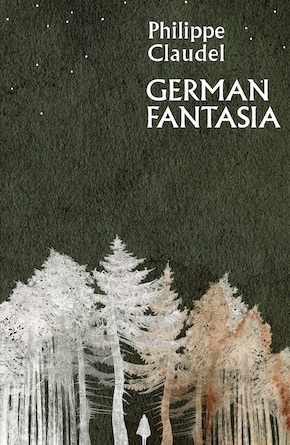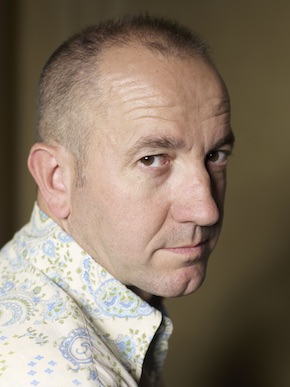History and ‘the people’
by Philippe Claudel
The stories in German Fantasia were written between 2016 and 2020. Although the times and the conditions under which each of these texts was written were different, they turn on themes and ideas that have been important to me for a long time: first and foremost that of the incoherence of history and the roles men play in it, or rather think they play in it. Also the idea of ‘the people’, the nation or human group, an idea about which I feel considerable scepticism, preferring to see each individual as a grain of sand in the midst of a big pile – compact or friable, depending on the moment – who one random shove can put in a position they could have never imagined.
The idea of guilt too, which is not to be understood in this context in its moral sense any more than it is to be envisaged as contemporaneous with the action it relates to: it’s more to be read as the result of a decanting that the present carries out in relation to the past, and upon which history bases its principles and its orthodoxy.
Finally the idea of memory – consubstantial with the activities of writing and reading, whether it’s about individual memory, whose functioning for me constitutes one of the greatest human mysteries, or collective memory, which sometimes weighs with unbearable force on the life of the group that has constructed it and lives with it, and then again can seem emptied of its painful and awkward stuff, to the point of being simultaneously like a screen of fog and a comfortable drug.
When I collected these texts and laid them out in front of me, the way you lay out playing cards, I was struck by the echoes that connected them. So I reworked them, more substantially in some cases, less in others, to reinforce these links between them. Having done that, it struck me that they formed a genuine book, a sort of novel which I deliberately left incomplete, and at the heart of which is a call to the reader to fill the gaps by becoming a writer themselves. All of them tell us about fragments of existence in a century and a geography that are unique, and we discover little by little that these fragments resonate with each other, in a distant way, deeply or shallowly, under the headings of chance or coincidence. All of them create spaces of uncertainty. The character of Viktor becomes the symbol of this: in the course of the stories certain elements encourage us to believe this is the same person, others show us the opposite. So what sort of truth about him does that leave us with? And beyond him, about all truth? It seemed to me to be a metaphor for our lives, which we think we know but which we control so badly and which can, depending on the angle at which we shine a light on them, reflect back at us in a multiplicity of ways.
We discover little by little that these fragments resonate with each other, in a distant way, deeply or shallowly, under the headings of chance or coincidence.”
Germany in the twentieth century is the context for this book for two reasons. One, because in no other place have the themes I have talked about found their tragic embodiment with the intensity they found there. And two, because having been myself a neighbour of that country since my childhood, I have developed a relationship both of attraction and dread towards its landscapes, its culture, its language and its history, unlike any relationship I have with any other country in the world. Germany for me has always been a mirror in which I see myself not as I am, but as I could have been. In that sense, it has taught me a great deal about myself.
I will end by saying that the term ‘fantasia’ in the book’s title is to be understood in its musical and poetic sense, which describes, as is generally known, a work in which the author’s subjectivity dominates and which liberates itself from adhering to strict rules of composition or harmony.
From the afterword, ‘To the Reader’ in German Fantasia, translated by Julian Evans (MacLehose Press)
—

Philippe Claudel is a university lecturer, novelist, film director and scriptwriter. He has written 14 novels that have been translated into various languages. He was born in 1962 in Dombasle-sur-Meurthe, where he still lives. In 2009 his film I’ve Loved You So Long (Il y a longtemps que je t’aime), which draws upon Claudel’s eleven years teaching in prisons, won the BAFTA for Best Foreign Language Film. Among his novels, Grey Souls won the Prix Renaudot in France, the American Gumshoe Award and the Swedish Martin Beck award. Brodeck’s Report won the 2010 Independent Foreign Fiction Prize. German Fantasia is published by MacLehose Press in paperback and eBook.
Read more
@maclehosepress
Author portrait © David Balicki
Julian Evans is a translator, biographer and travel writer. He translates from French and German, including works by André Gide and Norbert Gstrein. He is a Royal Literary Fund Consultant Fellow.
julianevans.com
@thejulianevans

